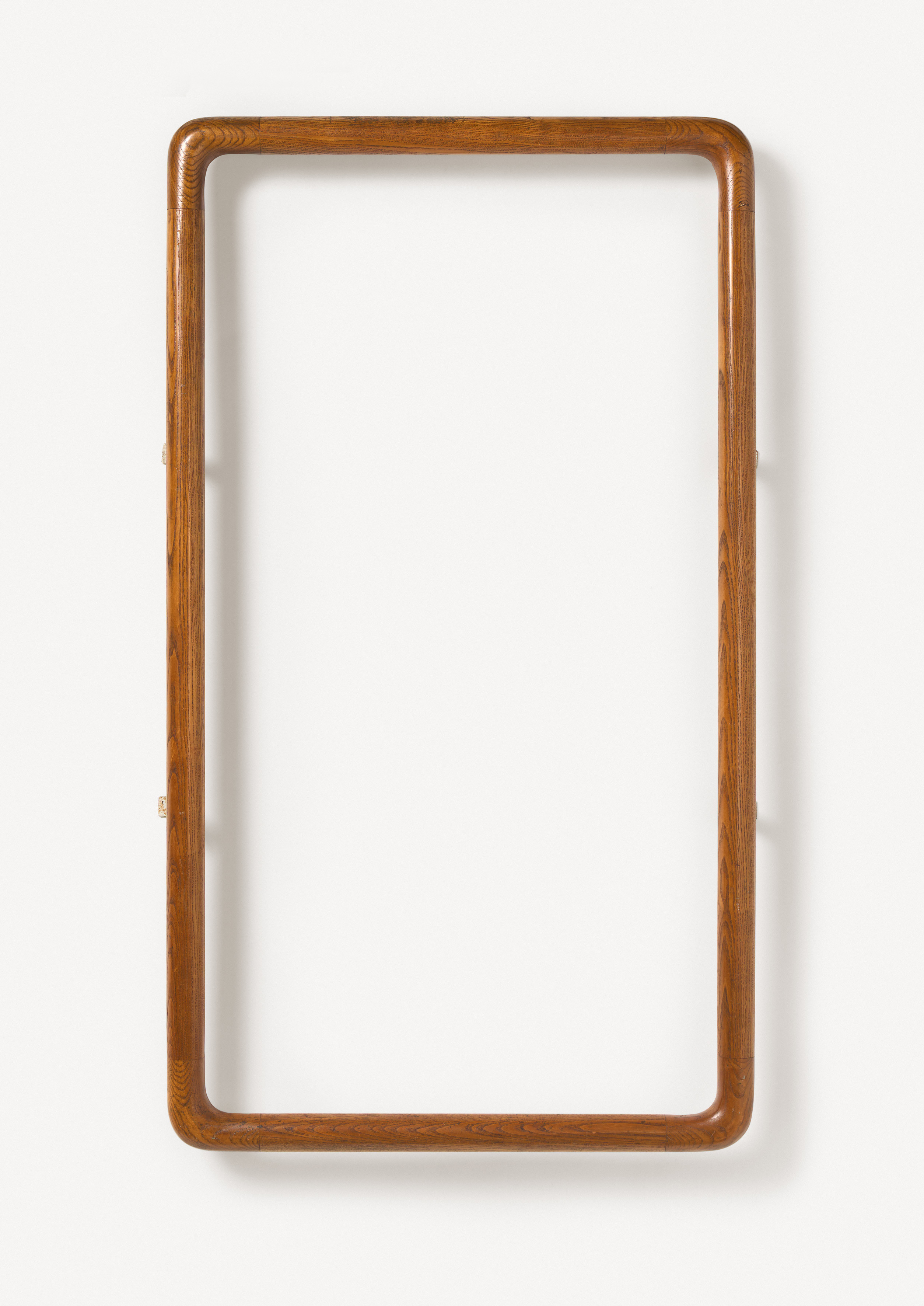ARTSCHWAGER, RICHARD
1924 Washington - 2013 Albany/N.Y.
Title: Handle I.
Date: 1962.
Technique: Wooden frame, verso with metal suspension.
Measurement: 126 x 71 x 11cm.
Provenance:
- Kasper König Collection, Berlin (directly from artist)
Exhibitions:
- Whitney Museum of American Art, New York 1988
- Haus der Kunst, Munich 2013/14
- Museum Frieder Burda, Baden-Baden 2017/18
- Museo di arte moderna e contemporanea die Trento e Rovereto, 2019/20
- Guggenheim Bilbao, 2020
- Leo Koenig Inc., New York 2022
Literatur:
- exhib. cat. Artschwager, Richard, Whitney Museum of Modern Art, New York 1988, no. 1, p. 47, ill.
- exhib. cat. Richard Artschwager, Whitney Museum of American Art/Hammer Museum, New York 2012, p. 11, ill.
- exhib. cat. America America, How Real is Real?, Museum Frieder Burda, Esslingen 2017, p. 52, ill.
- exhib. cat. Richard Artschwager Museo di arte moderna e contemporanea die Trento e
Rovereto/Guggenheim Bilbao, Mailand 2019, cat. no. 108, p. 85, ill.
The ordinary and the obscure
Richard Artschwager's oeuvre contains elements of the leading art movements of the 1960s such as Pop Art, Concept Art and Minimal Art. Basically, the works are based on everyday objects. On the one hand, these can be perceived visually and, on the other, the works confront the viewer physically. The ambivalence between the ordinary and the obscure is realized through the suspension of functionality. His "Tables" or "Pianos" are imitations of objects whose use is rendered obsolete by their execution and at the same time their uselessness is translated into Artschwager's own aesthetic.
Handle
"Handle I" from 1962 marks the beginning of Artschwager's aesthetic ambivalence. Assembled into a rectangle from elements of a polished wooden handrail, the work defines itself as a sculpture. At the same time, the artwork is installed hanging on the wall like a painting, whereby the materiality of the wood in its special form is reminiscent of a frame that reveals and encloses the view of the empty wall. The peculiarity of this construction also sharpens the viewer's perception by removing the functionality of a railing that should actually be touched. "Handle I" by Artschwager also complements the discourse on the concept of sculpture in the 1960s, which is reflected in its reception in art history.
Kasper König and Richard Artschwager
Kasper König met Artschwager in New York at the end of the 1960s and a close friendship developed between the two. He left his apartment in New York to Artschwager when he took up his position in Halifax. Their collaboration is also reflected in numerous exhibitions: in 1987 Artschwager creates his first concrete sculpture in public space for Skulptur Projekte Münster and in 1993 his works are exhibited at Portikus in Frankfurt am Main under the title "Archipelago". Richard Artschwager also gives the speech for Kasper König at the presentation of the Audrey Irmas Award for Curatorial Excellence 2000 at Bard College in Annandale-on-Hudson, New York.

